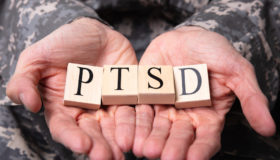Coping with PTSD: Three Stories of Triumph
June 27, 2024
For many Veterans grappling with the challenges of PTSD, hobbies, sports and even vocations can serve as vital outlets for managing symptoms and fostering a sense of normalcy. Engaging in activities that require focus, physical exertion, and social interaction can significantly alleviate the stress and anxiety associated with PTSD. Whether it’s through the camaraderie of a team sport, the tranquility of fishing, or the creativity of painting, these pursuits offer a productive way to channel emotions and provide a structured routine that can be incredibly grounding. Additionally, physical activity has been shown to release endorphins, the body’s natural mood lifters, which can help counteract the negative emotional states commonly experienced by those with PTSD.
Finding purpose and passion through hobbies or sports is not just about passing the time; it’s about reclaiming a sense of identity and agency. For Veterans, who may struggle with the transition to civilian life and the loss of military structure, discovering new passions can reignite a sense of purpose and self-worth. Whether it’s mastering a new skill, achieving personal fitness goals, or contributing to a team, these activities can provide a meaningful way to reconnect with oneself and others. The pursuit of a passion not only fills the void left by military service but also fosters resilience, providing Veterans with the tools they need to navigate their journey toward healing and recovery.
At Soldiers’ Angels, we get the opportunity to interview and, in some cases, work with Veterans who have found healing outlets to help them manage PTSD symptoms. Here are three stories of triumph that are sure to inspire you.
Hopping on the Entrepreneurship Path
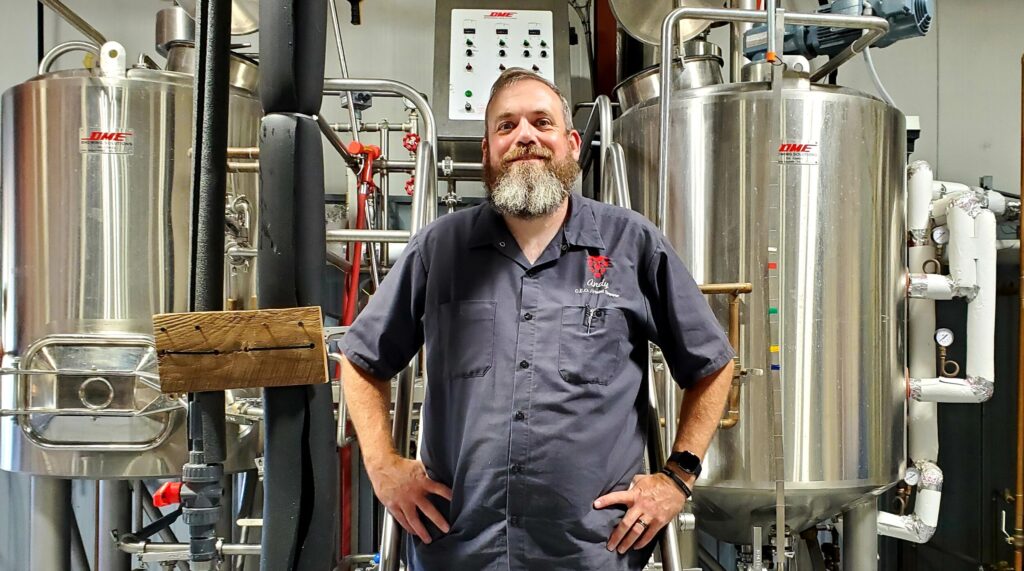
Andy Reynolds is an Army Veteran who found himself struggling with anger and other PTSD side effects as a civilian. In the Army, he worked as a Buffalo Commander whose mission was to find IEDs.
“We were fortunate enough as a battalion that everybody made it home, but nobody was the same after that deployment. I mean we got our butts kicked. I was hit by an IED while I was over there, and I had a concussion from it.”
Migraines, anger fits, and gastrointestinal issues were just some of the symptoms he faced after returning from his second Deployment.
“Every time we’d go out and it was crowded, I’d wind up trying to fight somebody. It wasn’t good.”
Andy’s wife got him help at the VA, he found a therapist, and he got involved with Project Odyssey, a retreat offered by the Wounded Warrior Project where Andy took home valuable lessons on how to deal with PTSD. During a goal-setting session, he decided he would rewrite his business plan to start a brewery – a passion he found while Deployed.
“I kind of started home brewing in Iraq as bad as that sounds. It was just making hard cider, my buddy’s wife sent us some cider yeast and we started fermenting apple juice, and that turned into a love of brewing for me. I got home, became a homebrewer, and really got into it. It was one of the few things that I found that distracted me from my demons, but it was something I couldn’t do all the time because I had a regular job at that point. My goal was to start a brewery, but the money we had set aside for it, unfortunately, all went to healthcare bills because I wasn’t service-connected. I didn’t know anything about how to work with the VA at that point because it was never properly explained to me. So I lost a lot of my money. But, through the Wounded Warrior Project, I learned about the VOC Rehab program, it’s a chapter of the GI Bill now. Basically, if you’re service-connected disabled over 20% they pay for any kind of school you want to go to. There is some counseling that goes along with it prior to you leaving things you kind of have to do to try to figure out where you should really be going to school. So I connected there and I went to Siebel Institute of Technology, which is the oldest and probably the most renowned brewing school in the United States. It’s in Chicago. And you know, I learned how to become a professional brewer because of the VA.”
Alexandria Brewing Company is in Alexandria, Kentucky, and has won multiple awards for its beer. They are also a 2024 Hops for Heroes brewery! Here’s the Tribute to our Heroes interview we did with Andy if you want to hear his full story.
Wrestling with PTSD
David Campos was an employee of Soldiers’ Angels and, as our Veteran Support Volunteer Manager, he was an integral part of finding volunteers to work within the VA Hospitals we serve. David also served in the Army for six years as a Combat Medic. He was deployed to Iraq two times in the early 2000’s during the height of Operation Iraqi Freedom.
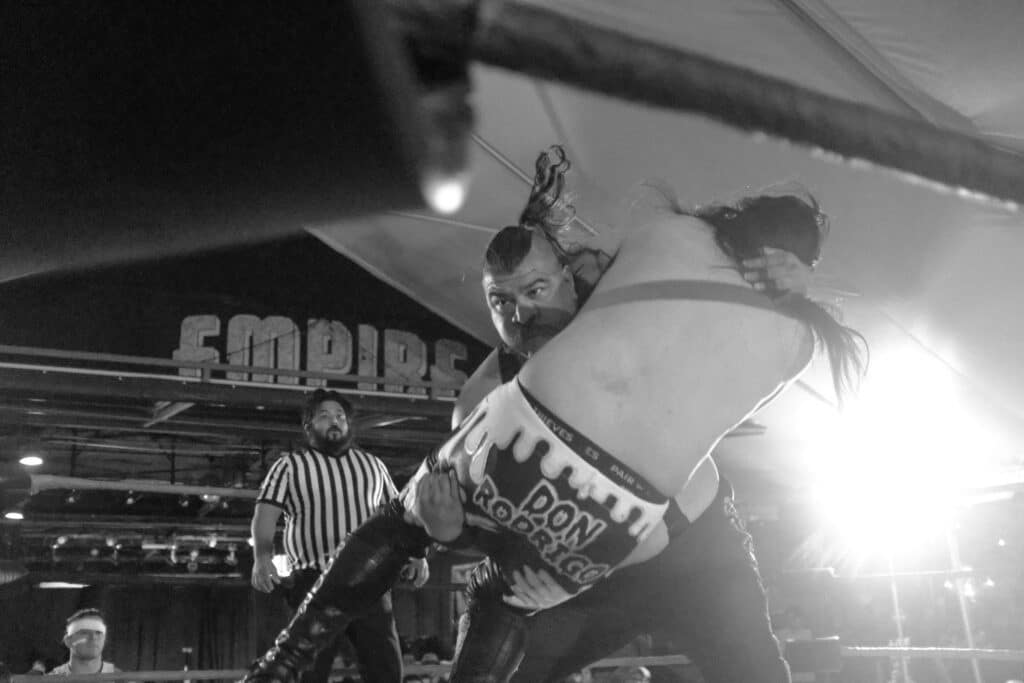
“I was a fresh-faced 19-year-old when I joined the Army. Before I joined, the only direction I had to go was down. The same direction I felt upon returning home after my final deployment in 2006,” says David in a blog he wrote about his PTSD back in 2018.
“Almost a full year of training exercises could’ve never prepared me for the initial invasion of Iraq in 2003- Operation Iraqi Freedom.”
As a medic and at one point working part-time as a prison guard, he experienced tragedy every day – something he says he became numb to after a while.
“After that 2005 deployment, I was ready to return home to Texas. My family and friends were grateful to have me home but something just didn’t feel right. I couldn’t sleep without feeling fear, anxiousness and most of all… anger. I drank heavily every day and abused drugs every chance that I got so that I can create some kind of mask and hide what I was feeling. I drank to numb my feelings and used drugs to sleep or stay awake when I was too terrified to close my eyes. Numerous counseling sessions, group therapies, and anti-depressants could not fix what was going on in my head it seemed. I shut the world out. Refusal to come out of my home and talk to anybody would last for weeks, sometimes months. I was in the darkest place that I could ever imagine and I was living in fear constantly,” he says.
David’s support structure was what really helped him after he did the work to acknowledge that there was a problem. We love what he says about love saving him:
“My support structure is also a big part in my recovery as I have family and friends who want me in this world. They make me feel important every day and never let me forget that I do mean something and that I am somebody that matters. You want to know the real cure for PTSD? It’s LOVE. That is the greatest medicine on the planet and it doesn’t cost a dime.”
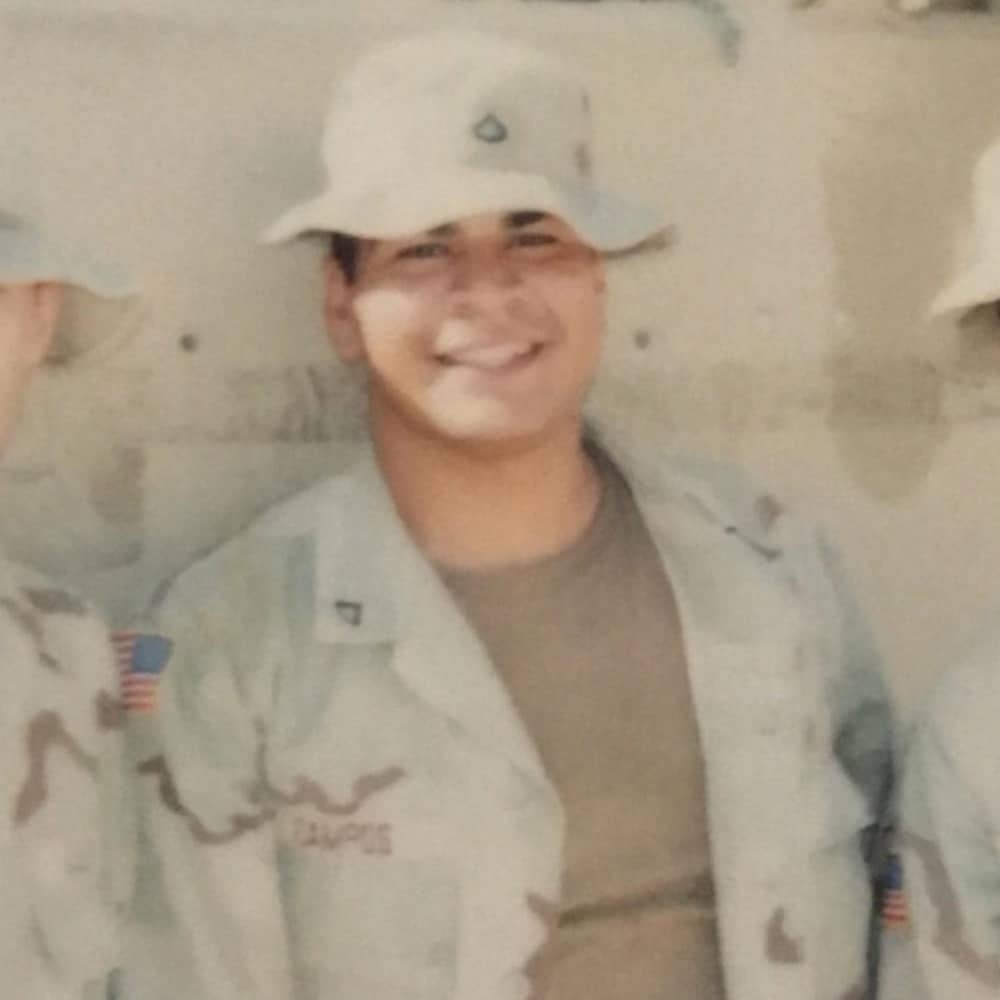
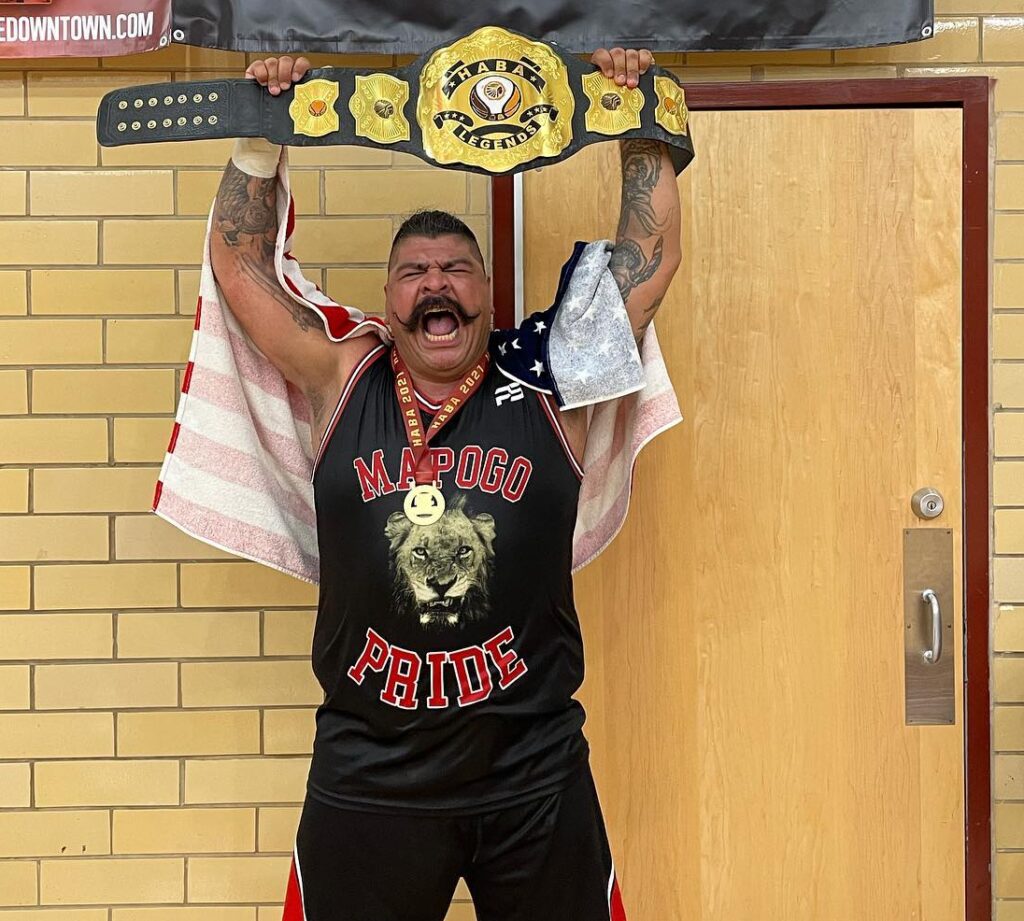
He also found an outlet that has helped him build community, find purpose and passion: wrestling. David is the “StudStashe Enforcer,” a wrestler in San Antonio, Texas who means business.
“StudStache Enforcer, I give everything, every single day, my day starts with training at 5am- look at my stories, countless conversations about wrestling – why each move is done, why each and every different look of my face is shown. Endless hours of watching film, wrestling the invisible man. Not much time left in that ring, but I will continue to give it everything I possibly can, not only for myself, for the appreciative fans, true friends, and to make mi Familia proud. The Army built me, PTSD shattered me, Wrestling saved me.”
You can follow him on Instagram and Facebook.
Running with Purpose
2023 was the year our team ran the Marine Corps Marathon together because A) we were offered charity bibs and B) we had a Veteran who really needed the support. Tania came to us as a Veteran Intern battling PTSD and addiction. We didn’t know then, but her struggle would forever change us. Shortly after joining our team, Tania relapsed and we all came together to support her. We were there to listen, made sure she got to rehab, and supported her with care packages while she was there.
During her recovery, she had been training for the Houston Marathon. She was pretty heartbroken when she realized during rehab that her body was not in a position to run that marathon. As a way to encourage her, our CEO, Amy Palmer told her she should do the Marine Corps Marathon with her. And so true to her word, they both signed up.
Running has been a huge part of Tania’s recovery.
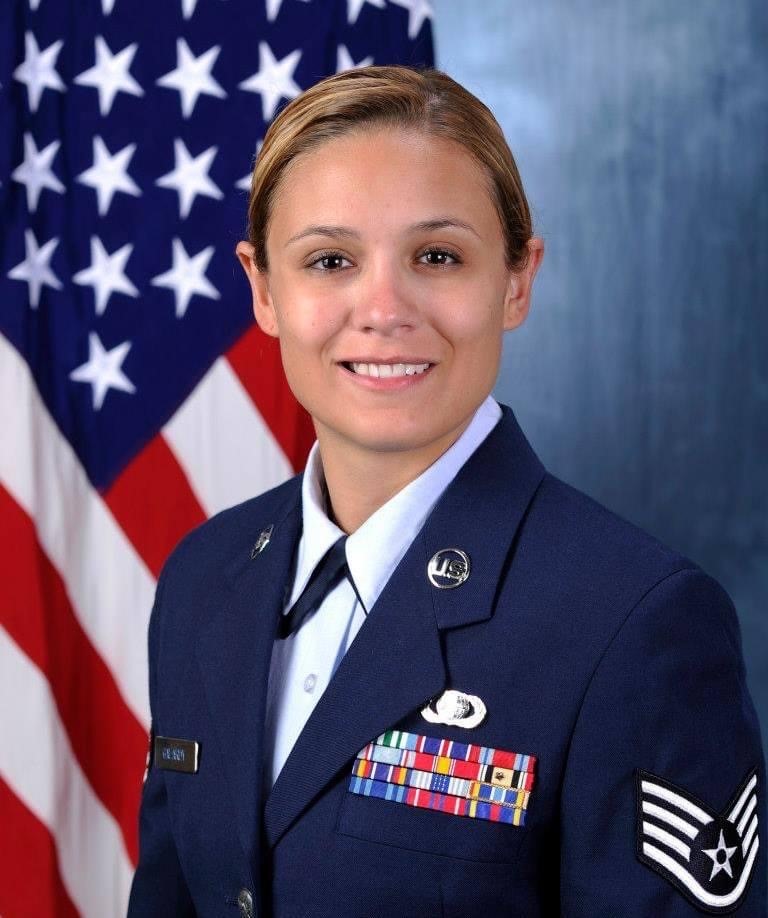
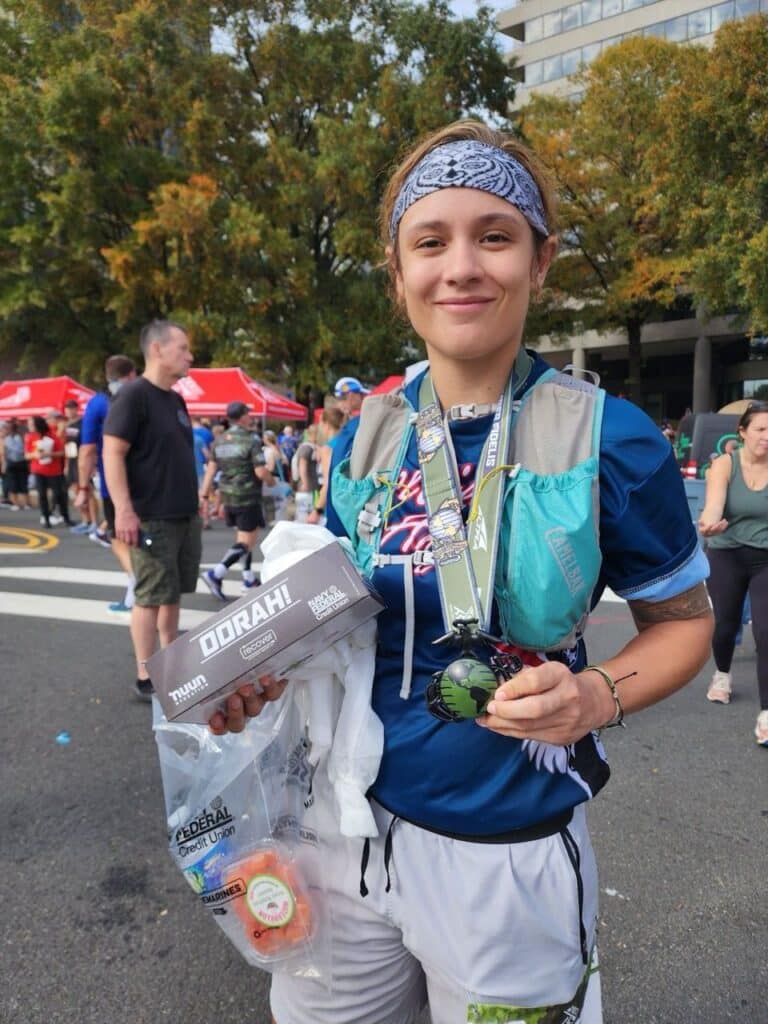
“Training is months and months of dedication. It’s something that keeps me accountable because I know I need to wake up and go for a run at least four times a week. Exercise and running, specifically, have just been huge for my recovery. I treat it as a meditation. I put my headphones in and I listen to a podcast, listen to music, and sometimes just listen to the sound of my breathing,” she says.
Tania finished the Marine Corps Marathon 11 months into her sobriety and has since gone back to school to earn her bachelor’s degree. Read her full story (and watch the interview with her) here.
If you or someone you love are suffering from PTSD, help is a phone call away.
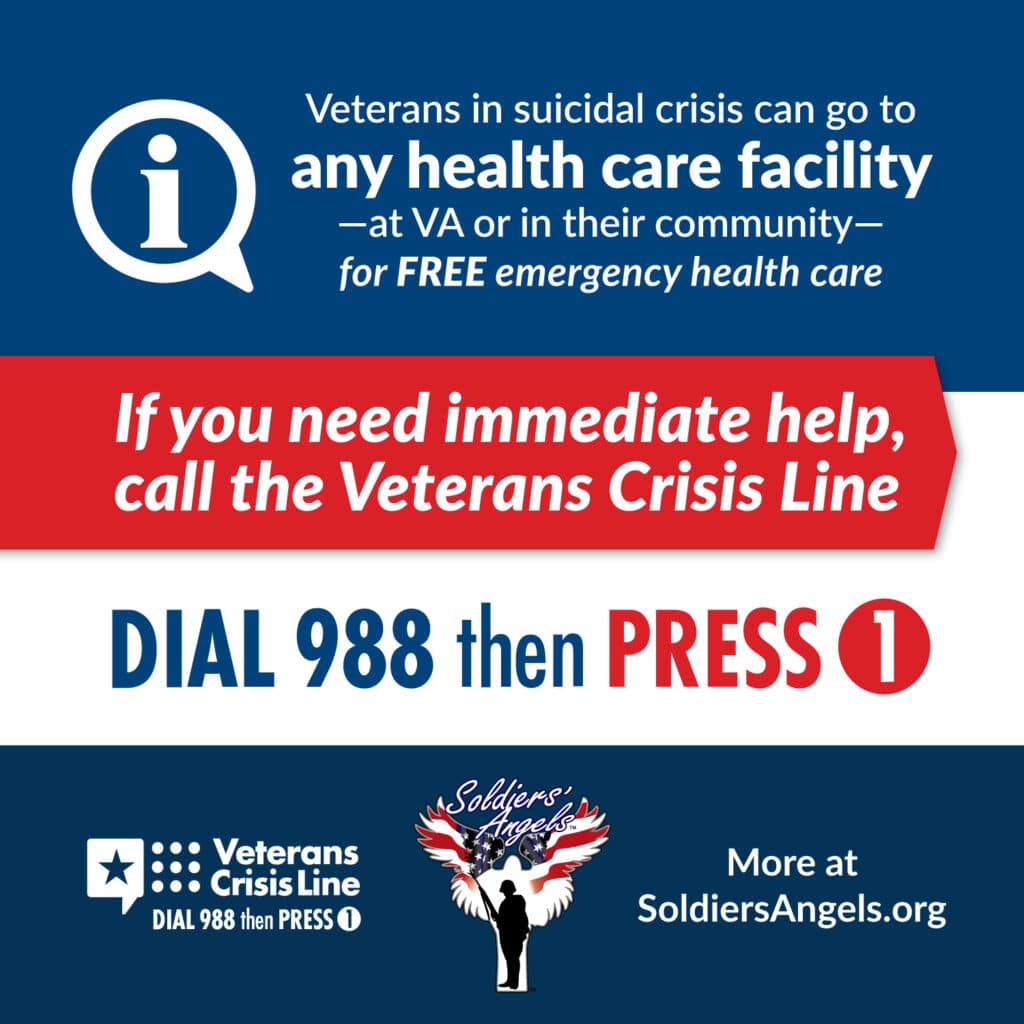
- National Suicide Prevention Lifeline: 1-800-273-8255
- ADAA mobile coaching app (from the US Department of Veteran Affairs), provides a directory of local mental health professionals and has a searchable directory of PTSD support groups in your area.
- The Veterans Crisis Line is confidential, free hotline for veterans and their families and friends. Call 1-800-273-8255 (Press 1) or connect via chat or text (838255).
- PTSD Program Locator will help you find specialized VA PTSD treatment programs near you.
- Veteran Combat Call Center is a 24/7 hotline where you can talk with another combat veteran: 1-877-WAR-VETS (1-800-927-8387).


